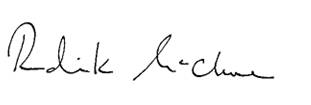Foreword
I was Dean of the Faculty of Medicine and Health in rural Australia when the COVID-19 pandemic began. Being a public health physician by trade, it was not too long before I left the University sector to return to the coalface and join the response. Those early days of the pandemic were uncertain, everchanging and of high consequence. Fortunately, while COVID-19 is still with us, the tumult of the onset years has retreated a little into history. Nevertheless, it is important not to forget the critical factors that supported and impeded success as we all strove to confront and resolve the challenges brought by the pandemic. By examining and reflecting on what we have learned over those years we can be better placed to respond to the inevitable challenges of future pandemics.
In late 2023, I returned to the Dean of Medicine role, and have since had the privilege of working with the highly regarded and highly committed researchers who have led the publication of Africa’s Knowledge Bridge. It has been incredibly exciting for me to sit with members of the team to hear about their community-focused approaches and the academic rigour of the research that they and their colleagues undertake.
The value of research lies not solely in generating new knowledge but in putting this knowledge in the hands of the communities who can use it. I have worked in clinical and community practice, and as an academic researcher, educator and an administrator, and I have worked for public health agencies in several governments. My early career was spent in Africa in community-based research; on a global stage, I continue to collaborate with health experts from across the continent. For me, Africa’s Knowledge Bridge demonstrates the triple helix of entwined practice, research and learning.
Africa’s Knowledge Bridge is an authentic account of the pandemic in Sub-Saharan Africa. It carries the energy of the moment. It demonstrates the holistic nature of the challenge. As a collection of contributions, it elegantly captures the multiple voices, perspectives and areas of expertise that came together as the pandemic unfolded, and combined to deliver the solutions we were all seeking.
If there is one lesson we all learned during the COVID-19 pandemic, it is that health is a property of the population and community. We all had a part to play. We were all suddenly aware of the complex world that we live in.
The COVID-19 pandemic evolved at a lightning-fast pace, on an exploding scale. The potential severity of the condition, at an individual and community level, quickly became evident. In a brief time, there were few in the world who had not been affected in some way by the condition or response to the condition. Given the emerging nature of the problem, there was a lack of prior knowledge of the organism, the transmission pathways, and clinical manifestations and treatment options. Clinical and population health policy decisions needed to be made in the face of deep uncertainty. Resource requirements often outpaced supply. There was tremendous interdependence between elements of the transmission and response systems, and a path of dependence that constrained solutions. The impact of risk behaviours was often multiplicative, rather than having additive effects, and risk variables had a non-linear, non-static relationship. Unintended consequences of interventions and competing public health outcomes needed to be considered. Self-organising solutions, adaptation to the latest information and phase shifts between conditions at different points in the pandemic were all part of the journey.
The complexity of the COVID-19 pandemic developed against the backdrop of social, cultural, economic, political and geographical structures of the populations affected. Where do we start to create academic commentary in a way that can be both inspiring and be of practical use? Africa’s Knowledge Bridge has achieved this by uniting in one volume voices from across the continent to present different insights. Through the juxtaposition of these perspectives, the book has created an overall narrative that provides the evidence base to coherently appreciate the complex problem. Regions with varying levels of resources and advantages often endure most of the emerging health challenges, and consequently, it is these regions that have the most to offer the world in shining a light on new solutions. Africa’s Knowledge Bridge has a story for us all.
The complexity of the COVID-19 pandemic developed against the backdrop of social, cultural, economic, political and geographical structures of the populations affected. Where do we start to create academic commentary in a way that can be both inspiring and be of practical use? Africa’s Knowledge Bridge has achieved this by uniting in one volume voices from across the continent to present different insights. Through the juxtaposition of these perspectives, the book has created an overall narrative that provides the evidence base to coherently appreciate the complex problem. Regions with varying levels of resources and advantages often endure most of the emerging health challenges, and consequently, it is these regions that have the most to offer the world in shining a light on new solutions. Africa’s Knowledge Bridge has a story for us all.

Dr Rod McClure, School of Medicine, Western Sydney University
Professor of Public Health Medicine
Dean, School of Medicine, Western Sydney University
Pro-Vice Chancellor Health Futures, Western Sydney University
| https://orcid.org/0000-0002-9067-8282 |

